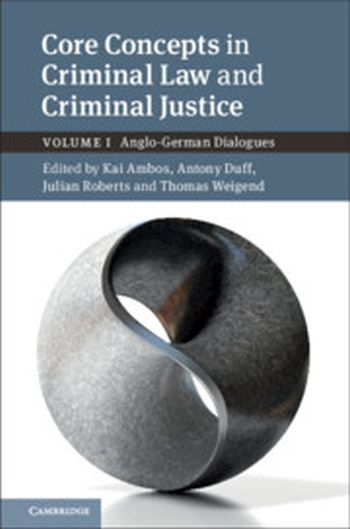
Attempts at trans-jurisdictional debate and agreement are often beset by mutual misunderstanding. Professionals and academics engaged in comparative criminal law sometimes use the same terms with different meanings or different terms which mean the same thing. Although English is the new lingua franca in international and comparative criminal law, there are many ambiguities and uncertainties with regard to foundational criminal law and criminal justice concepts. However, there exists greater similarities among diverse systems of criminal law and justice than is commonly realised.
This book explores the foundational principles and concepts that underpin the different domestic systems. It focuses on the Germanic and several principal Anglo-American jurisdictions, which are employed as examples of the wider common law-civil law divide.